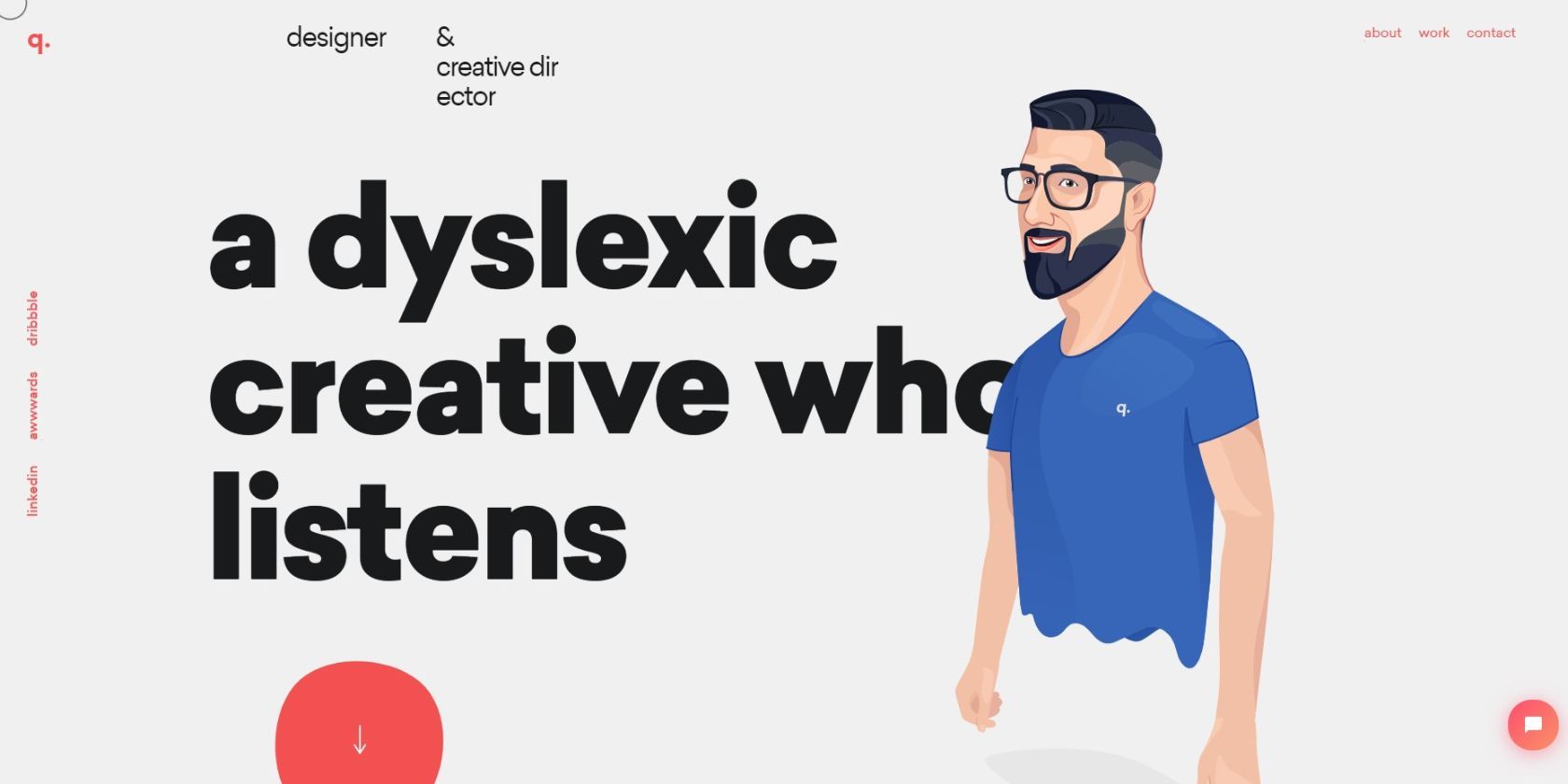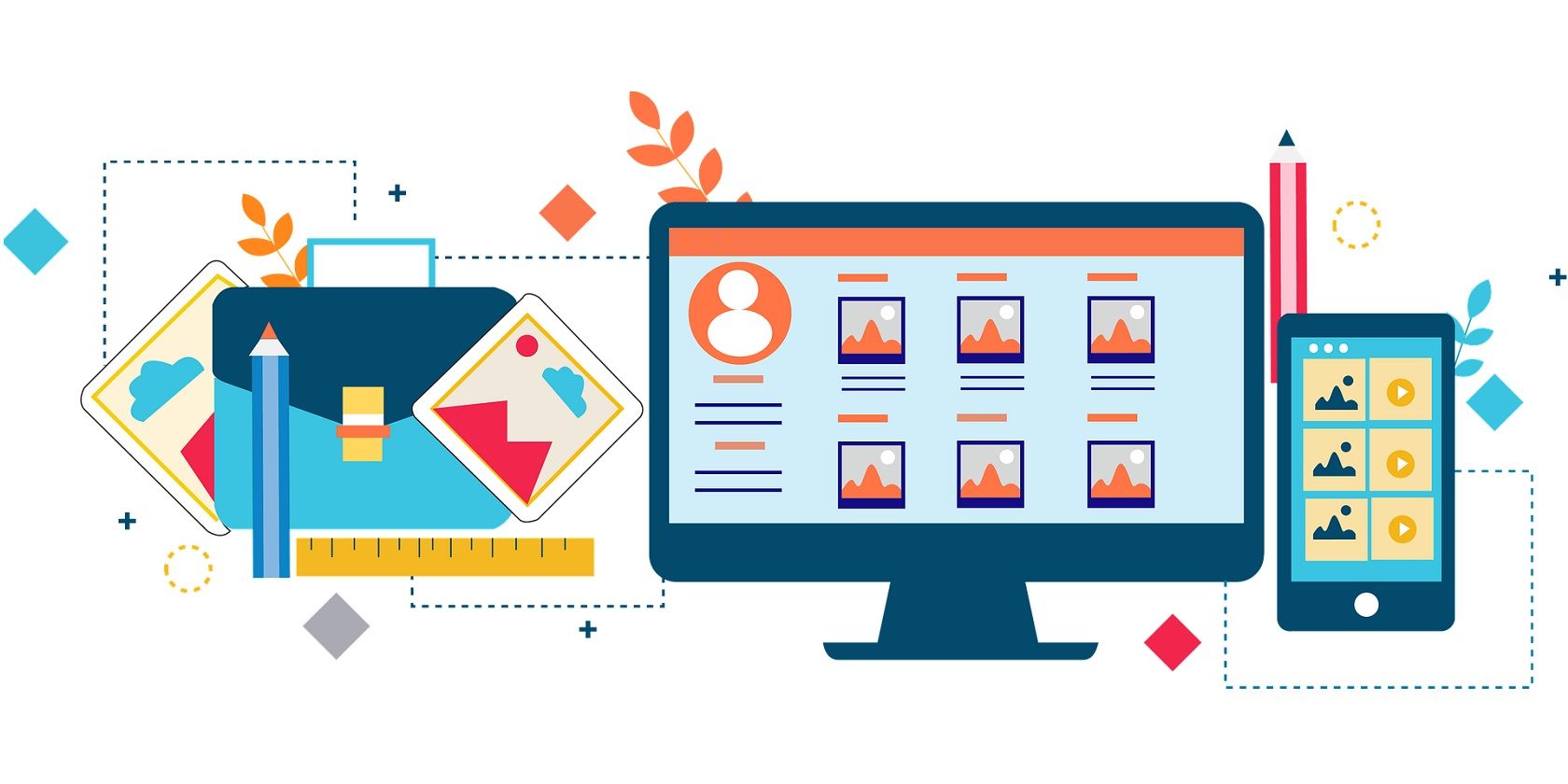Do you need a website portfolio to help you land a job? Even if recruiters don't ask, providing a link to a portfolio is a good idea. Here are some reasons why building a website portfolio can help your job search.
1. Increases Visibility
When you need the support of a writer or web designer, what do you do? Chances are, you'll search on Google, a job board, or social media to look for one. While newspapers and other print publications aren't dead, finding what you're looking for online is much easier and less time-consuming.
Think of your website portfolio as a marketing tool. Nowadays, recruiters would also look for candidates on the best job posting websites for employers. Adding an online presence on these websites increases your chances of getting hired. Use the website features to add a link to your website portfolio, so employers can easily find you.
2. Gives You Credibility
From an employer's standpoint, you're a stranger looking for a job. You're no different from other strangers looking for work in their company. A website portfolio differentiates you from the rest of the pack and gives you credibility. Armed with a portfolio, you're not a nameless face but Olga Geletina, a product designer, or David Obodo, a software developer.
You don't want to sound sketchy or too good to be true. Since job scams have become rampant online, employers need to learn not to get scammed when hiring online. Your portfolio with your contact details and links to live projects shows employers that they're interfacing with a real person online.
3. A Portfolio Attests to Your Skills
A website portfolio is tangible proof of your accomplishments and the skills you highlighted on your resume. With it, you can take your employer on a visual journey through your career. For example, Peter Arendt's website shares live links and include a background of each of his projects as a front-end developer and designer.
If you're wondering how you can launch a career in tech with no experience, let your website portfolio do the talking. In Global Focus Magazine, Prof. Kim Watty and Dr. Jade McKay write that an e-portfolio proves a student's employability skills. Your website portfolio shows employers that you're capable, even if you lack work experience.
4. Visually Engaging
Applying the design tips to make your portfolio look amazing leaves a good impression on potential employers. Moreover, the University of Minnesota Libraries says incorporating compelling visuals like photographs or illustrations captures the audience's attention. When you pair engaging copy with visuals, your work becomes relatable and unforgettable.
Ladders, Inc.'s recruiter eye-tracking study found that recruiters spend an average of only 7.4 seconds looking at your resume. Job interviews also work within a limited time frame. To become more memorable, enhance your presentation with a visual website portfolio.
5. Shows Your Personality
An ideal website portfolio should give employers a feel of who you are. You can use copy and visuals to display humor, empathy, collaborative skills, creativity, attention to detail, and other professional capabilities. While you can use pre-made templates, make the copy and visuals your own.
You can check out Manaf Al-Nakib's website for inspiration. The website reflects the creator as skilled, highly creative, and professional. It's what you can expect from someone who markets himself as an interactive art director who designs intuitive websites made for humans.
Compare this to Qaisar Ahmad's website. Ahmad is also a web designer and creative director. Just like Al Nakib's website, his website speaks in his unique voice. He grabs readers' attention with his tagline, "a creative dyslexic who listens." His web copy sounds professional without being overly formal. You'll get the impression that the person behind the website is creative, friendly, and easy to work with.
6. Organizes Your Accomplishments
Your website portfolio is an organized display of your most important projects. In job interviews, employers may ask questions like "Which project proved most challenging for you, and how did you tackle it?" With a portfolio, you can easily remember and direct them to a project on your website.
If you're a senior employee, it's easy to lose track of your accomplishments. You might remember the project name and company, but not the details. A website portfolio helps you recall essential information to update your resume or use the data for future endeavors.
7. Builds Confidence
You'll experience highs in your career, but the lows are also inevitable. Layoffs, resignations, shutdowns, career breaks, and getting fired are all possibilities. Your website portfolio reminds you of the skills you gained, your accomplishments, and your career path.
Remember, you don't need to include all your accomplishments in your portfolio. Select the projects you're most proud of, illustrate your skills and knowledge, and show what you'd like to continue doing. When you look back, you can become more confident about the experience and abilities you have gained throughout your career.
8. Convenient Way to Share Work Samples
Job hunting is faster and easier with a website portfolio. Using your device, you can make changes anytime and anywhere with an online portfolio. A website portfolio is also a quick and easy way to share work samples with a potential employer. You can share the link in an online message or include it on your resume.
You can use free hosting services if you know how to create a portfolio website from scratch. Or you can try free websites like Canva, Weebly, or Behance. You can also link your portfolio on social media sites. The most popular social media sites are familiar and easy to navigate, helping you reach more clients and recruiters.
9. Useful in Other Applications
A portfolio can also be helpful in other scenarios aside from job searching. For instance, you can use it when negotiating a promotion or a salary increase. To justify your ask, you can refer to your portfolio if you need evidence of your key accomplishments.
A website portfolio will also be helpful if you're applying for a scholarship or getting a second or higher degree in the creative or IT field. Some academic institutions might require you to submit a portfolio as part of their application process. The video above from the University of the Arts London explains what a portfolio is and how it can help gauge an applicant's potential.
Create Your Website Portfolio
Creating a website portfolio is a worthy investment of your time, especially if you're aiming for a creative or tech job. You don't have to make your website complicated. Put yourself in your audience's shoes and make your portfolio engaging, simple, and easy to navigate.
Building a website is one of the first steps in a successful job search. You can further improve your chances of landing a job if you know how to showcase your portfolio to employers. Read up on tips to personalize your website and stand out to recruiters.




.jpeg)




